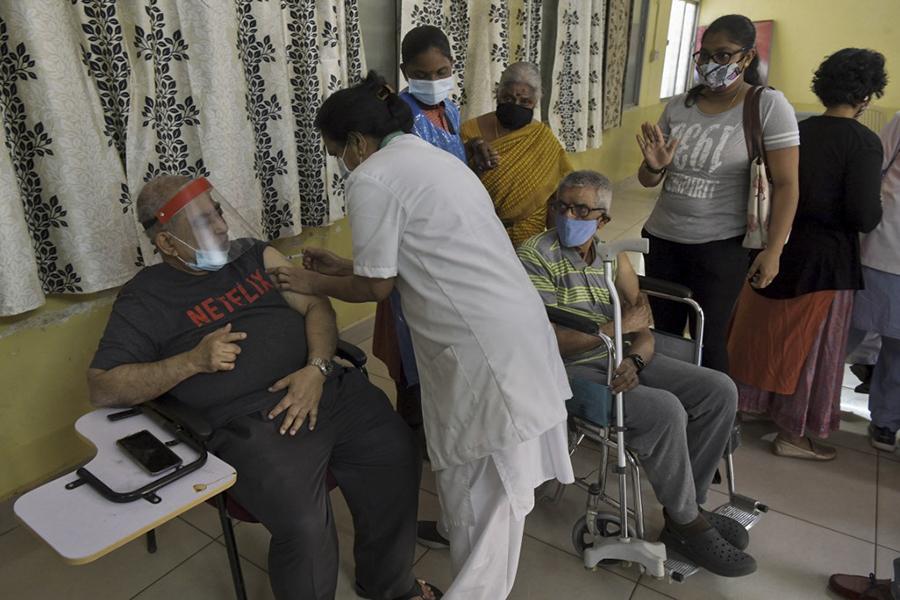India's Vaccination Drive: Will private sector participation be a shot in the arm?
Private hospitals can add pace and swiftness to the vaccination drive in addition to being able to manage the large numbers as they have safe, infection-free, and segregated spaces to maintain social distancing.
Achieving the goal of universal health coverage (UHC) hinges on building equity in healthcare and striving for affordable excellence. The pandemic reiterated the need for greater collaboration like never before, as it came as a reality check. While initially, we saw countries after countries, with the best of their healthcare systems, finding it challenging to manage Covid-19, it also gave us an opportunity to witness what can be achieved through collective effort.
New forms of collaborations emerged with unprecedented speed to develop advanced forms of diagnostics and testing, treatments, devices, medical supplies, PPEs, and vaccines in the shortest possible time. In recent decades, there hasn't been a greater realisation that robust healthcare trajectory for the future can only be built only by joining hands together.
After a disruptive year, 2021 and the new decade has got off to a sound start due to the participation of the private sector, a move encouraged by the government to help build a strong healthcare infrastructure. Private hospitals are privileged to have the chance to support the government to make India's large-scale vaccination drive a success. More than 60 percent of hospitals in India are private with varied bed capacity, infrastructure, skilled manpower, and bandwidth to vaccinate between 500 and 15,000 people per day. These hospitals can easily manage the large numbers as they have safe, infection-free, segregated spaces to maintain social distancing, with separate exit and entry points.
In addition, it is also possible for private hospitals to procure and deliver vaccines to institutions, corporations, banks, educational institutions, and others at a cost. This will further boost the vaccination process and increase coverage among communities in a shorter time. Time is critical now because of two reasons–shorter shelf life of the vaccines and sporadic surges in infections among different states across India. Pace and swiftness are important factors because the faster we vaccinate, the quicker the possibilities of achieving herd immunity, with a lower risk of new strains. And pace is what private providers can provide. Further, private hospitals can also drive home positive messaging among existing patients and their families, answer questions and bust any prevailing myths around vaccines. They can also harness the potential of technology and AI to ensure streamlining of data on vaccine administration, outcomes as well as vaccine adverse effects which can feed back into an integrated national health system.
Since March 1, when the second phase of vaccination got underway to include senior citizens and working professionals over 45 with co-morbidities, we are enthused by the response and trust that the citizens of India have placed in us. It is heartwarming and humbling to see seniors in their 80s and 90s, waiting patiently for their turn to get vaccinated, many with their spouses. The fact that they are aware that vaccines are safe for the elderly is testimony to allay any hesitancy, fear, or reluctance among the general population. Prime Minister Narendra Modi along with with many senior ministers have got themselves vaccinated, demonstrating their faith in the efficacy of the vaccines and this will definitely help in gaining public confidence and trust.
While the coordination and procurement process has been smooth and efficient, any initial technical glitches are expected and are a minor issue. To address possible challenges on this front, many hospitals have set up their own call centers and a parallel booking unit through internal apps to streamline the registration process and prevent any unnecessary waiting period for the people. The most recent decision to allow 24x7 vaccinations at hospitals will provide the much-needed flexibility of time for working professionals and senior citizens.
This year with the budget 2021, the government has made a strong push, both for economic recovery and important schemes and measures to build a self-reliant, healthy India. Therefore, this is the most opportune time for cooperation, empathy, and hand-holding among all stakeholders. No hospital is looking at this as a commercial opportunity but as a chance to serve people. For us this is a collective endeavor to help make India Covid-free.
The writer is MD and CEO of Fortis Healthcare.
The thoughts and opinions shared here are of the author.
Check out our end of season subscription discounts with a Moneycontrol pro subscription absolutely free. Use code EOSO2021. Click here for details.

